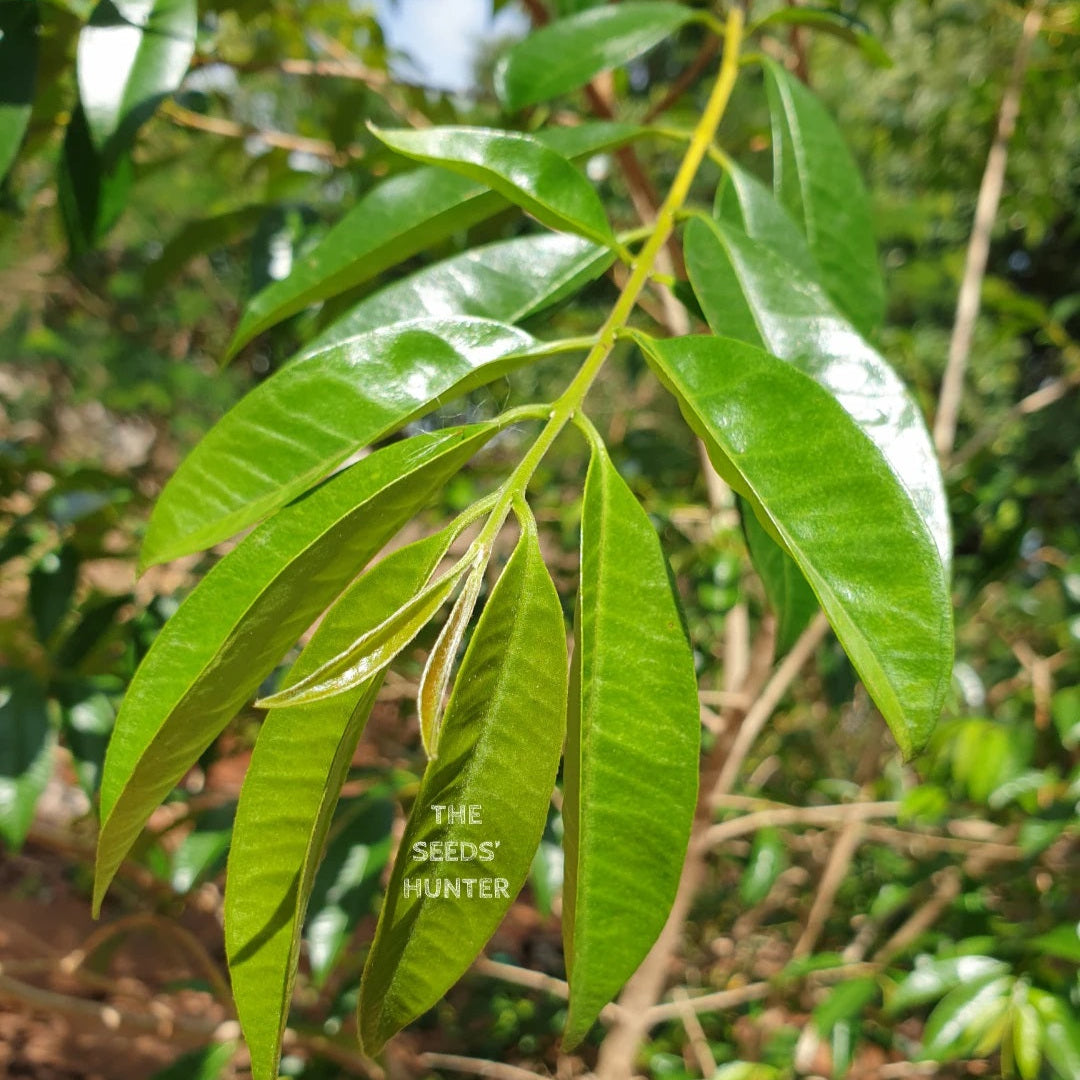Love it? Add to your wishlist
Your favorites, all in one place. Shop quickly and easily with the wishlist feature!
[message]
[title]
[message]



Veliyath Gardens
Couldn't load pickup availability
Native Regions: Northeastern Brazil, parts of Colombia, and northern Peru
Annona leptopetala is a rare and graceful species of the Annonaceae family, making a quiet but impactful impression in the landscapes of northeastern Brazil and beyond. This evergreen shrub or small tree, ranging from 3 to 8 meters in height, is valued not only for its unusual appearance but also for its sweet, edible fruit. With a slender, often twisted bole and a light, open crown, the tree brings both elegance and intrigue to any exotic garden or fruit collection.
Though not widely known in commercial horticulture, Annona leptopetala holds immense promise for those who seek tropical diversity and naturally sweet fruit with unique botanical traits.
Tree Height: Grows between 3 and 8 meters tall
Trunk: Short, crooked bole (15–25 cm diameter)
Crown: Light and irregular, offering a graceful silhouette
Leaves: Oblong to lance-shaped, evergreen, providing lush green cover year-round
Flowers: Deep red flowers with a unique structure, similar to Rollinia
Fruit: Single-seeded carpels containing sweet, non-acidic pulp
Its most striking feature is its botanical rarity—Annona leptopetala is the only known species within its genus to exhibit separated carpels, a trait that sets it apart in scientific interest and cultivation appeal.
The fruit of Annona leptopetala is small yet charming, with a delicately sweet pulp that contains no trace of acidity or bitterness. The taste is smooth and mild, making it an excellent fresh-eating fruit, particularly favored by children and the elderly for its gentleness and easy digestibility.
Flavor Profile: Purely sweet, mellow, and soft
Texture: Creamy and tender
Consumption: Best eaten fresh; also ideal for blending into juices, desserts, or breakfast smoothies
Seeds: Each carpel holds one seed, and the seeds are easily separable from the flesh
For those who appreciate subtle, uncomplicated flavors from nature, this fruit is a delightful discovery.
Though less studied than its relatives like cherimoya or soursop, the fruit of Annona leptopetala is believed to share many of the nutritional strengths of the Annonaceae family, including:
Natural Sugars: Provides quick energy in a clean, natural form
Vitamin C: Supports immune health and skin vitality
Dietary Fiber: Aids digestion and supports gut health
Antioxidants: May reduce oxidative stress and promote cellular health
Mildness: Its non-acidic nature makes it suitable for sensitive stomachs
When enjoyed regularly during its season, the fruit can offer subtle but significant nutritional boosts, especially to those seeking natural, additive-free wellness options.
This species is not just beautiful—it is surprisingly manageable for a rare tropical tree.
Sunlight: Requires full sun to partial shade; best growth occurs in bright, warm locations
Soil Preference: Prefers well-drained, slightly acidic to neutral soils rich in organic matter
Watering: Needs consistent moisture during growing periods, but avoid waterlogging
Temperature: Thrives in warm, frost-free climates; protect from cold drafts and sudden drops
Humidity: Moderate humidity encourages leaf and flower development
Pruning: Occasional pruning enhances structure and helps manage size
The tree adapts well to tropical and sub-tropical garden spaces and will reward patient growers with its unique fruits within a few years of establishment.
In its native regions of Brazil, Annona leptopetala is occasionally harvested from the wild for personal or local community use. The fruit’s mild and sweet flavor makes it popular in rural home gardens, especially where high-acid fruits are avoided due to dietary needs or preferences.
In Colombia and parts of northern Peru, it has also drawn attention from small-scale growers and herbalists interested in the broader health benefits associated with the Annonaceae family. Though not traditionally used in mass-market foods or medicines, it holds promise for future ethnobotanical study and cultivation.
Harvesting: Pick the fruits when they begin to soften and change color slightly. The flesh is most flavorful at this point.
Storage: Fresh fruits can be kept in a cool, dry place for 2–3 days. For longer use, scoop the pulp and refrigerate or freeze it in airtight containers.
Seed Handling: Seeds can be cleaned and dried for planting or propagation
Preserving the pulp in frozen form allows year-round use in smoothies, healthy ice creams, or even homemade fruit pastes.
Including Annona leptopetala in your garden is about more than growing another fruit tree—it’s about inviting biodiversity, sweetness, and subtle elegance into your everyday life. Its gentle flavor, rare botanical traits, and graceful growth make it a wonderful addition to home orchards, eco-conscious landscapes, and exotic plant collections.
Whether you’re a seasoned gardener or an enthusiastic beginner, this plant offers an experience that is both accessible and fulfilling. The reward is not just the fruit but the journey of watching something truly unique flourish in your care.
At Veliyath Gardens, we specialize in curating and nurturing some of the world’s rarest and most intriguing exotic fruit trees. Our Annona leptopetala plants are grown with attention to detail and offered to garden lovers who appreciate the beauty and richness of lesser-known botanical treasures.
This is your opportunity to own a plant that combines visual appeal, edible value, and cultural significance—all in one elegant form.
Bring home Annona Leptopetala. Let your garden whisper stories of sweet simplicity and rare discovery.
Available now at Veliyath Gardens.
Sunlight: Requires full sun to partial shade; best growth occurs in bright, warm locations
Soil Preference: Prefers well-drained, slightly acidic to neutral soils rich in organic matter
Watering: Needs consistent moisture during growing periods, but avoid waterlogging
Antioxidants: May reduce oxidative stress and promote cellular health
Mildness: Its non-acidic nature makes it suitable for sensitive stomachs
When enjoyed regularly during its season, the fruit can offer subtle but significant nutritional boosts, especially to those seeking natural, additive-free wellness options.
Natural Sugars: Provides quick energy in a clean, natural form
Vitamin C: Supports immune health and skin vitality
Dietary Fiber: Aids digestion and supports gut health
Antioxidants: May reduce oxidative stress and promote cellular health




